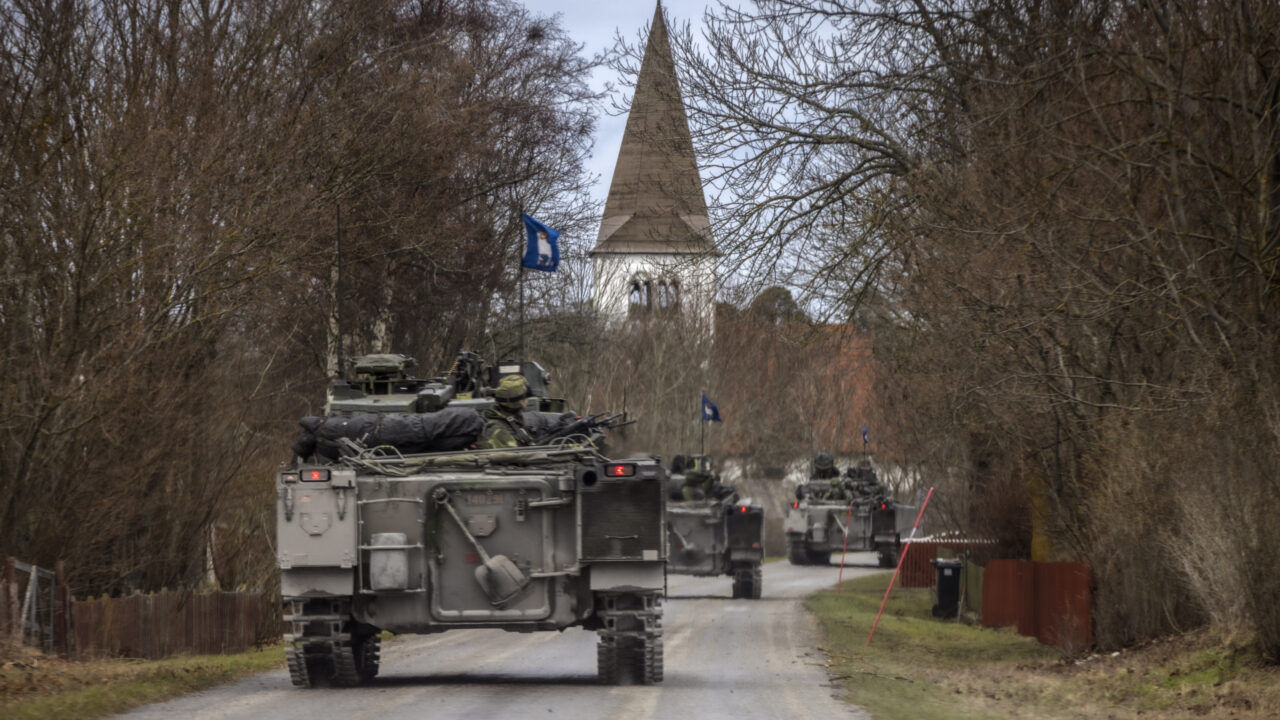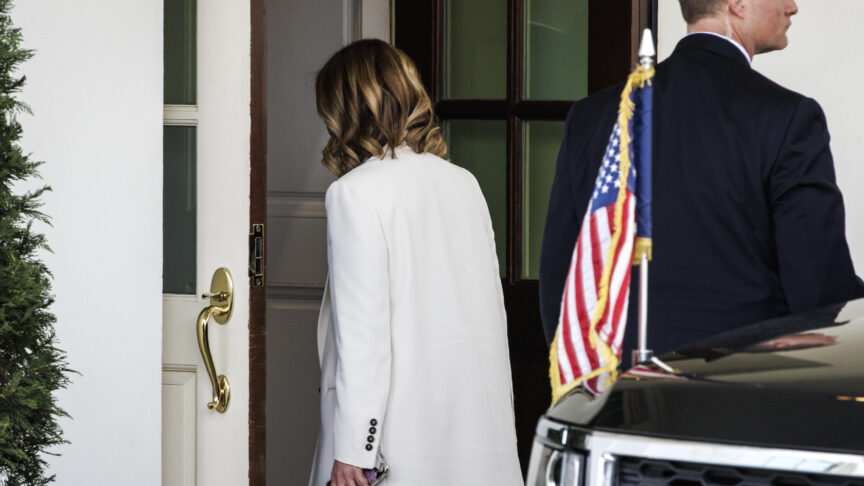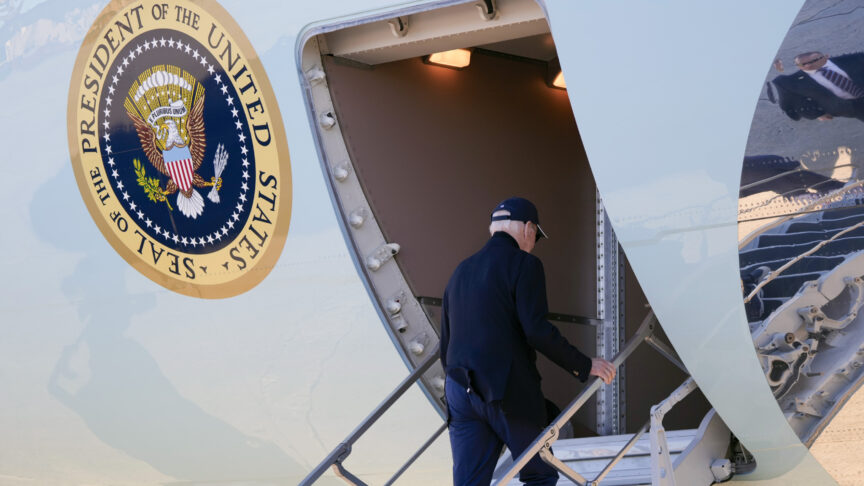How the Russia-Ukraine crisis could change Sweden’s security policy
The Swedish debate on membership of NATO has been reignited by the Russia-Ukraine crisis. But there are still many good reasons why Sweden should not join the alliance
Tanks on the streets of the medieval tourist city Visby. Other military deployments on the strategically important island of Gotland, in the Baltic Sea. Swedish children asking their parents: “will there be a war?”
Swedes are waking up to security challenges in the light of Russia’s troop movements and threats against Ukraine. Although a direct military attack on Sweden seems unlikely, the Swedish debate on NATO membership has been reignited by Russia’s actions.
Sweden has a long history of military non-alignment. The country declared its neutrality at the start of the second world war and built a strong national defence capability during the cold war without joining NATO. After Sweden joined the European Union in 1995 – a move made possible by the fall of the Iron Curtain – the concept of Swedish neutrality became obsolete. Today, Sweden remains outside NATO but its security doctrine calls for close cooperation with the United States and other members of the alliance.
After the Soviet collapse, Sweden reduced its territorial defence capabilities and shifted the focus of its military planning to international peace operations. In 2008 the Russian invasion of Georgia energised NATO defence planning for the Baltic states, which had implications for Sweden. NATO concluded that it would need access to Swedish territory in operations to defend Latvia, Lithuania, or Estonia. Gotland is strategically important in such scenarios, as the deployment of surface-to-air missiles on the island would help a military power gain control of the southern part of the Baltic Sea.
Solidarity with other Western democracies is a fundamental part of Sweden’s security policy. During the current Russia-Ukraine crisis, NATO states such as the Netherlands have demonstrated their ability to help Sweden defend Gotland from a Russian attack. Such cooperation has been the focus of several recent exercises.
So, at a time when Russia seems poised to invade Ukraine, why shouldn’t Sweden join NATO if it already cooperates with the alliance so closely? Opponents of Swedish accession to NATO argue that such a move could increase tensions in the Baltic region, that non-membership will provide Sweden with greater strategic flexibility in the long term, that NATO’s nuclear policy would undermine the country’s long-standing commitment to nuclear disarmament, and that it would be unwise to join an alliance that offers security guarantees to Turkey. Proponents of membership argue, inter alia, that this would formalise the sides’ close cooperation, that only Article 5 of NATO’s founding treaty (on mutual defence) would provide Sweden with enough security, and that widespread misgivings about membership are overstated.
Sweden’s debate on NATO membership also focuses on its neighbour to the east, Finland. The two countries have similar security policies, are militarily non-aligned, and engage in far-reaching defence cooperation with each other. However, there are also significant differences between them. For example, Sweden has not experienced a war on its territory for more than 200 years, while many in Finland have strong memories of conflict with the Soviet Union. Finland also shares a long border with Russia. For decades, Finland’s strategic situation has been a major factor in Sweden’s non-alignment policy.
“The boys can stay outside”, said Finnish president Tarja Halonen in 2002 when Swedish prime minister Göran Persson visited Helsinki. She was referring to their security policy advisers, who had to wait in the lounge while the two leaders agreed only to apply for NATO membership after consulting each other. There are good reasons for this “strongbox agreement”, which still seems to be in force. If one of the countries moved alone, this would put the other in a difficult position. So far, during the current crisis, both the Finnish and Swedish governments have made clear that they have no intention of applying for NATO membership.
If US democracy remains unstable and Trump-style politicians gain even more momentum, Sweden may gradually change its position on EU defence
But Finland and Sweden disagree on some security issues, such as defence cooperation within the EU. As Finnish Foreign Minister Pekka Haavisto observes: “Finland is close to the French position and believes in more military cooperation within the EU.”
Former Swedish foreign minister Anna Lindh advocated a more autonomous EU in security policy 20 years ago. But, in recent years, Sweden has opposed significant steps towards stronger European military capabilities. Last year, Sweden was one of several countries that objected to proposals for an EU rapid reaction force.
Will this change? In the short term, probably not. The current public debate in Sweden is mostly about closing ranks and moving closer to the US and NATO. In early January, Prime Minister Magdalena Andersson stressed that Sweden would deepen its cooperation with the alliance. The Swedish government has strongly rejected Russia’s demands for NATO to change its open-door policy and restrict its exercises.
But, in the long term, the Swedish position might not be as fixed as it first seems. Like many other EU member states, Swedes have doubts about whether the United States’ commitment to European security will outlast the Biden administration. In parallel, France has a growing interest in the Baltic region. In recent years, the country has increased its military presence in the Baltic states and conducted many exercises in the area. Sweden has joined the French-initiated European Intervention Initiative (EI2). And Sweden and France recently signed a Letter of Intent on defence cooperation.
Daniel Färm – editor-in-chief of the Social Democratic Party magazine Aktuellt i Politiken – has argued for a more positive Swedish view of EU defence. Referring to former US president Donald Trump, he asked: “what happens if and when Sweden and Finland find themselves in a difficult security situation, and an American president either acts weakly towards Russia, or concludes that it is not a sufficiently strong US interest to support our countries against Russian aggression?” Even supporters of NATO accession are nervous about Trump or someone like him gaining the presidency.
With Joe Biden in the White House, Swedish policy on EU defence is unlikely to change much. Defence Minister Peter Hultqvist is a strong supporter of cooperation with the US, while many Swedish senior military officers have received training there. Swedish defence industry cooperation with the United Kingdom, including on fighter aircraft, contributes to scepticism about greater cooperation with EU member states such as France.
However, if US democracy remains unstable and Trump-style politicians gain even more momentum, Sweden may gradually change its position on EU defence. Nonetheless, it is unlikely but not impossible that the populist Sweden Democrats will begin to call for NATO membership as part of a compromise with the centre-right. Were this to happen, there would suddenly be a parliamentary majority for accession to the alliance.
In any case, Sweden will likely accelerate its efforts to strengthen its military capabilities in the coming years. Much will depend on how the Russia-Ukraine conflict continues to change Swedes’ concept of security.
The European Council on Foreign Relations does not take collective positions. ECFR publications only represent the views of their individual authors.



